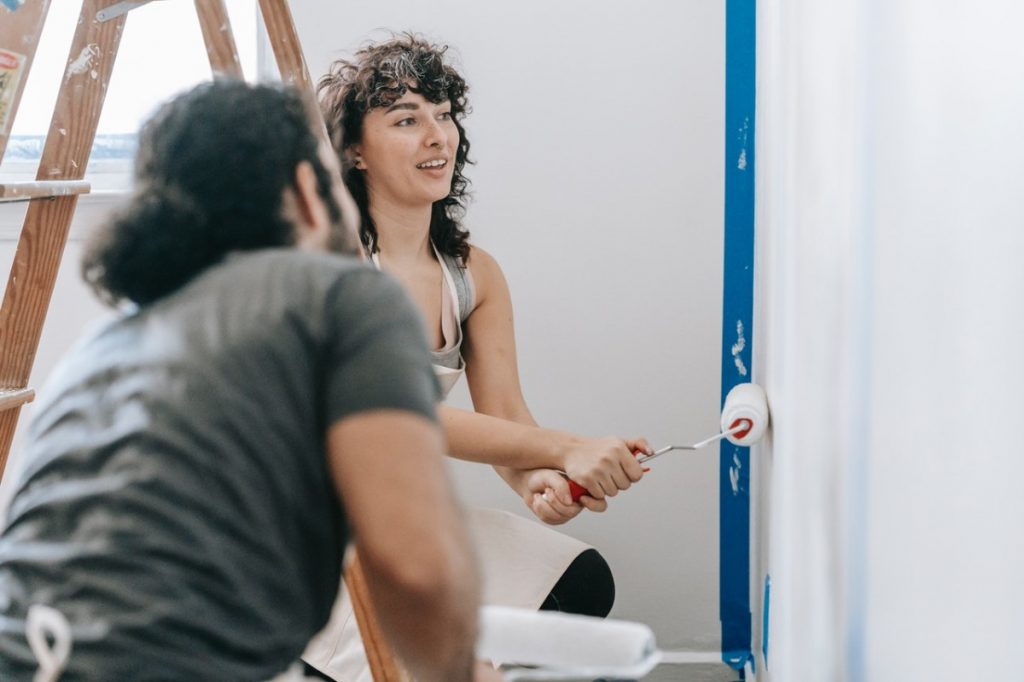House flipping can be a lucrative business; that is if you know how to do it right. While there is no one right way to flip a house, there are many mistakes that you need to learn how to avoid early on. In fact, many of these mistakes are made by first-timers or novices, which means that being aware of these mistakes even before you start flipping can put you in a great position.
Whether you’re about to flip your first house or have already flipped one or two, here are the most expensive mistakes that you can make in the process and what you can do to avoid them:
1. Ignoring curb appeal
Curb appeal is one of the most important factors in real estate. It plays a significant role in potential homebuyers’ first impression of the property, setting their expectations for what they would find inside the home. That said, if the curb appeal is good, homebuyers get a positive feeling about the house even before they step through the front door. Inversely, if a property has poor curb appeal, homebuyers may experience dismay as soon as they pull up on the street–definitely not a good thing if you’re trying to get the best price for the property.
Therefore, ignoring curb appeal is a massive mistake that can cost you in your house flip. To avoid this mistake, employ the help of an experienced landscape gardener to spruce up the lawn and fix any imperfections. Boosting curb appeal also has a lot to do with remodeling the exteriors, which can range from simply repainting the house or completely changing the exterior walls.
2. Underestimating costs
This is a common rookie mistake that, sadly, a lot of first-time flippers make. If you underestimate costs, you may find yourself with little to no profit at the end of the flip, or worse, end up losing money.
There are a lot of ways you can avoid this mistake. Here are some of the best ones:
- Get a home inspection. A home inspection is a basic step in home buying, even if you only intend to flip it. It will bring a lot of the property’s problems to light, which can help you decide whether or not flipping the home can be profitable.
- Set a buffer. No matter how good you are at estimating flipping costs, there may still be unexpected expenses down the road. Avoid getting caught off guard by setting a 10-15% buffer for any unexpected expenses that may arise.
- Avoid emotional decisions. It’s easy to become overexcited when house flipping, so much so that emotions can overtake your logical reasoning. That said, don’t let emotions direct your decisions. Stick to your initial plan, and as much as possible, have a second person to provide an outside opinion on flipping decisions.

3. Not having the skills
Much of the profit in house flipping comes from sweat equity. If you have basic carpentry skills, know how to fix a leaky faucet, are willing to paint a whole house, and have the patience for laying down flooring, you can flip a house. Inversely, if you can barely change a showerhead or don’t have any idea about hanging drywall, you would need to hire contractors to help you with flipping. Every contractor you hire will inevitably reduce your profit.
However, it is often impossible to flip a whole house yourself. You have to factor in the costs of hiring contractors to take care of electricals, plumbing, flooring, or any other aspect that you do not have the skills nor equipment to handle by yourself. Nevertheless, it pays to be knowledgeable in the house flipping aspects that you are not familiar with to ensure that you hire the best contractors for the job.
4. Rushing
Finding the right house to flip takes time. However, many novice flippers rush to buy their first house only to find out that they won’t make a substantial profit from it or it is too complex for them to flip. Some flippers also rush when finding a suitable contractor, which can also reduce their profit.
The key to making a good profit from a house flip is to take it to the right place. The process of flipping is often a time-consuming endeavor. That said, you must allocate more than enough time for each phase, from the home-buying down to finding the right buyer.
If you want to try your hand at house flipping, avoiding these mistakes can increase your chances of making a good profit. More importantly, it will allow you to avoid major pitfalls that can either make you lose money or have trouble selling the house entirely.

